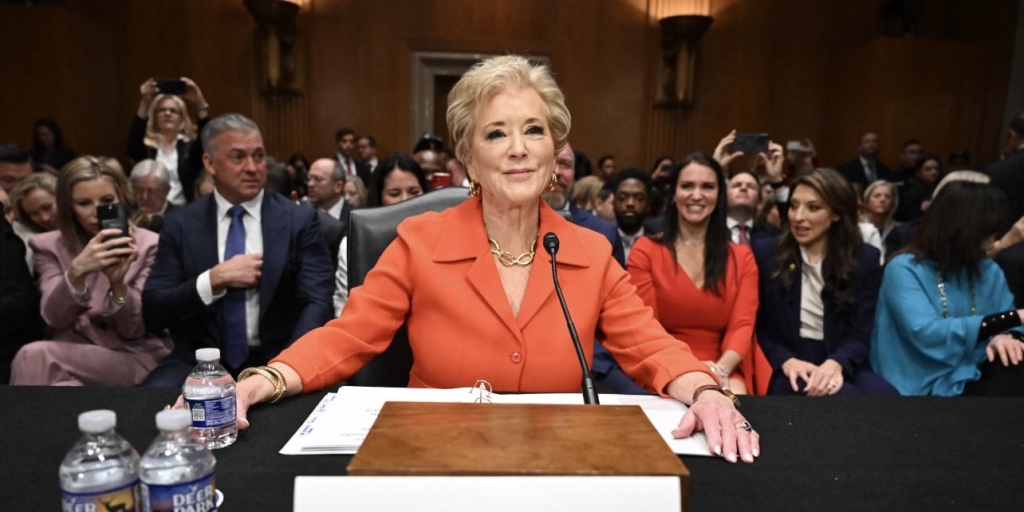The Alabama House of Representatives on Wednesday passed a historic $12.1 billion Education Trust Fund (ETF) budget for Fiscal Year 2026, advancing a record investment in public education that prioritizes school choice, targeted student support, and new benefits for educators.
The sweeping package includes SB112 and its supplemental appropriations, sending the legislation back to the Senate for concurrence. If approved, it will head to Governor Kay Ivey’s desk.
“As Alabama continues to make remarkable strides in public education, it’s vital that lawmakers in Montgomery remain committed to equipping our school systems with the necessary resources to help students thrive,” said House Speaker Nathaniel Ledbetter (R-Rainsville).
“This year’s ETF is significant for several reasons. It funds paid parental leave for teachers, expands summer and afterschool programs, and increases funding for the Alabama numeracy act, which has been a catalyst for our state’s nation-leading gains in 4th grade math. We’re making another strong investment in the CHOOSE Act, Alabama’s school choice program that is proving to be in high demand. Finally, we are creating the RAISE Program, a student-weighted funding model that funds schools based on their specific needs rather than headcount.”
The House-approved plan includes an $80 million increase to Alabama’s education savings account (ESA) initiative under the CHOOSE Act, raising total funding to $180 million. The program allows qualifying families to use up to $7,000 per child for tuition and related expenses at private or out-of-district public schools. Homeschooling families may receive up to $2,000 per child, capped at $4,000 per household. Unused funds will revert to the Education Opportunities Reserve Fund.
The budget also includes $58 million for the first phase of the “Renewing Alabama’s Investment in Student Excellence” (RAISE) Act. The student-weighted funding model replaces traditional headcount-based allocations with a formula that directs more money to schools serving students with higher needs, including low-income students, English language learners, gifted students, and those requiring special education services.
RELATED: RAISE Act clears Senate committee as Alabama moves toward student-based funding
In addition, lawmakers approved a $27 million increase to support Alabama’s nationally recognized gains under the Numeracy Act, which has driven fourth-grade math improvements statewide. The budget also sets aside $14.4 million to expand afterschool and summer enrichment programs.
Educator support was another key focus of the package. Lawmakers allocated $9.6 million for paid parental leave and $15.6 million to fund a new workers’ compensation program for school employees. The state’s monthly contribution to the Public Education Employees’ Health Insurance Plan (PEEHIP) will rise from $800 to $904 per employee.
State Rep. Danny Garrett (R-Trussville), Chairman of the House Ways and Means Education Committee, said the budget reflects a transformative shift in how the state approaches public education funding.
“For the first time ever, we are funding schools based off the needs of the specific students they serve instead of taking a one-size-fits-all approach and funding on headcount alone,” Garrett said. We’re also making significant investments in programs supporting teachers and students. Public education is on the rise in Alabama, and I believe that the passage of this budget will help us continue moving in the right direction.”
To address one-time capital needs, the budget draws $1.25 billion from the Advancement and Technology Fund for improvements and new career technical education centers. Of that, $100 million will be distributed through a competitive grant process to fund regional technical education hubs, with collaboration required between multiple school districts and a sliding scale for local matching contributions.
Unlike recent years, the budget does not include a teacher pay raise. Lawmakers say that decision reflects a strategic investment in healthcare and benefit enhancements to retain and support educators long term.
The Senate is expected to take up the ETF budget in the coming days, positioning Alabama to implement one of its most ambitious education funding plans to date.
Grace Heim is a state and political reporter for Yellowhammer News. You can follow her on X @graceeheim or email her at [email protected].













